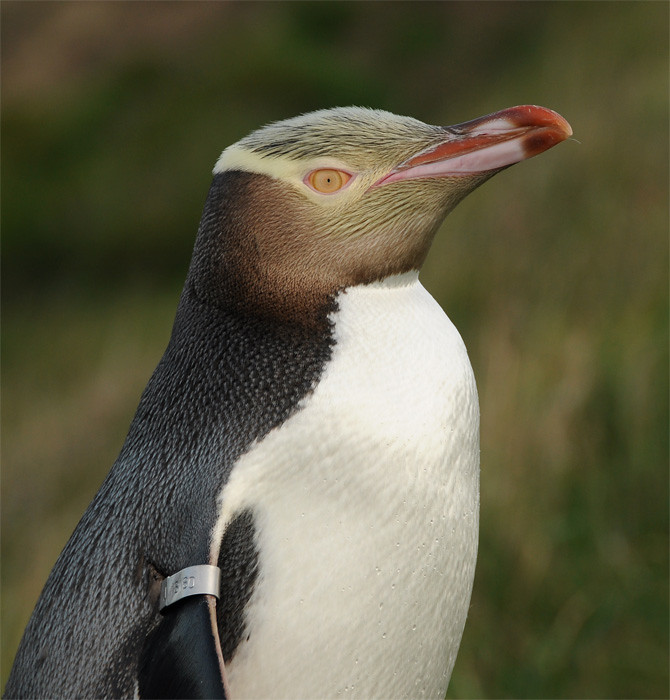This photo was taken on August 7, 2010.
Penguin numbers fall
Yellow-eyed penguin breeding numbers in the 2009-10 season are down 20% on last year's figures, but the Department of Conservation is not concerned.Doc biodiversity ranger Mel Young told about 50 people at the Yellow-Eyed Penguin Annual Symposium at University College on Saturday, there were 496 breeding pairs on Otago's coastline - down from the 577 recorded in 2009.
She said 601 eggs were laid at monitored nests and 493 (82%) of them hatched.
Those which did not hatch were found to have been abandoned (9), broken (1), embryo had died (5), infertile (10), unhatched (23), missing (25) or outside the nest (4).
Thirty-one failed to hatch because of unknown causes, she said.
After the successful eggs had hatched, further monitoring of the nests found about 40 chicks had died, 21 were missing and a further four were in too poor condition to fledge.
Of the 40 yellow-eyed penguins found dead, 14 were sent to Massey University for further analysis.
Miss Young said four were found to have died of starvation, three died from diphtheritic stomatitis, two died from having enlarged livers and the cause of death of five penguins was unknown.
Despite the slight fall in breeding pairs, Miss Young said Doc was not worried.
"Anything between 450 and 500 breeding pairs is great. It maintains the breeding numbers we've had over the last 30 years."
During the symposium, Yellow-eyed Penguin Trust general manager Sue Murray donated 10 hand-held transponder readers (worth $300 each) to those living on Otago's coastline who regularly came into contact with yellow-eyed penguins, in a bid to make it easier for them to check any bird they come across.
The trust now marked penguins with a microchip (transponder) placed below the skin on the back of the neck, rather than the traditional flipper band.
But when birds were handled due to injury or ill health, or found dead, there is now no quick visible way of knowing if they have been marked.
She said the transponder readers would help, and more could be made available to others living in penguin-populated areas on Otago's coastline.
Source



















No comments:
Post a Comment